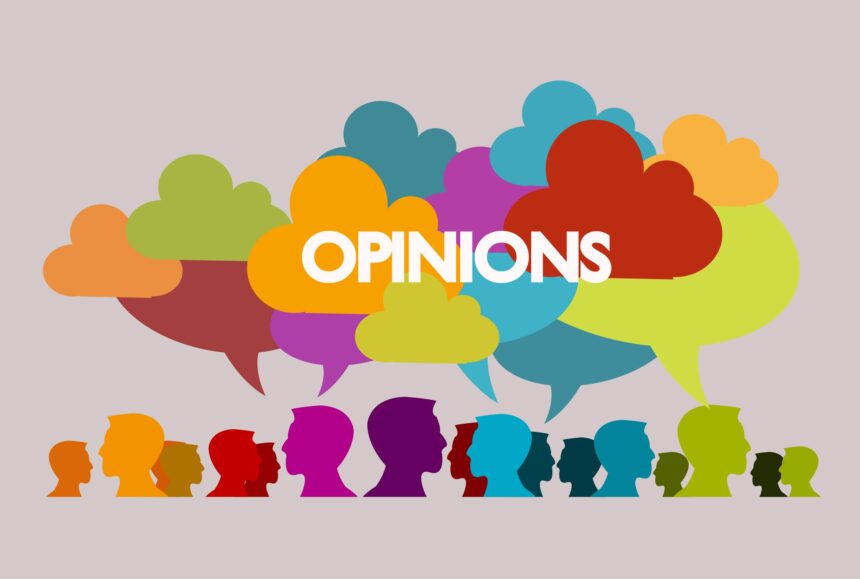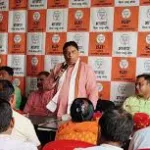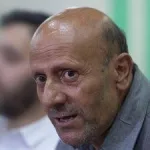Speculation is over. It is now in open. National Conference has joined INDI bloc allies like Trinamool Congress (TMC), Nationalist Congress Party (NCP) (Sharad Pawar), Shiv Sena (UBT), and Samajwadi Party (SP) to question leadership of Congress Party.
Omar Abdullah the Chief Minister of the Union Territory of Jammu Kashmir has advised Congress to stop whinging about EVMs, accept poll results and justify its leadership role in the alliance instead of taking it for granted.
It is not for the first time that NC leaders expressed their dissatisfaction with Congress party. Even before Assembly elections in J&K were announced frictions in the alliance were visible, although same was denied by both sides in open. NC leaders have privately never hesitated to question congress believing that the Congress did not do its bit during the campaigning and left all the real work for them.
Hitting where it Hurts
NC leader and Chief Minister has chosen to hit Congress party in a manner that hurts the party and its leadership most. Omar dismissed the Congress party’s vehement objection to Electronic Voting Machines saying that it can’t accept election results when you win, and blame EVMs when you lose.
“When you get a hundred plus members of Parliament using the same EVMs, and you celebrate that as sort of a victory for your party, you can’t then a few months later turn around and say… we don’t like these EVMs because now the election results aren’t going the way we would like them to,” Abdullah told PTI in an interview.
Similarly he chose to praise infrastructure projects like the Central Vista – an issue used by Congress party and Rahul Gandhi to accuse abuse and censure Prime Minister Narendra Modi in person.
“Contrary to what everybody else believes, I think that what’s happening with this Central Vista project in Delhi is a damn good thing. I believe constructing a new Parliament building was an excellent idea. We needed a new Parliament building. The old one had outlived its utility,” Omar Abdullah said.
Worst thing from the Congress Party’s viewpoint is the blame on leadership of the party (read Gandhis) “not doing enough to justify it or to earn it or to keep it –the leadership of the opposition alliance even after being the single largest party in Parliament, and also having the Leader of Opposition in both the Lok Sabha and the Rajya Sabha, the fact that they have a pan-India footprint.” It obviously is pointed towards Rahul Gandhi.
Conceding fissures in J&K
People of Jammu Kashmir are aware of disquiet among NC and Congress party in Jammu Kashmir. It is also in public domain that the alliance was stitched for assembly elections most grudgingly. Congress was forced to accept in what is believed to be humiliating conditions that includes less number of seats, choice of seats to be contested, so called ‘friendly contest’ in several constituencies and even changing of the PCC president.
All this was accepted in private but denied in public. Now the CM of alliance has come out in open to state that he was ‘not in a position to offer more than….we did offer’ in terms of ministerial berth in UT government. It is rumoured that one Minister of State was offered after which Congress party announced the decision that their participation in the government will be contingent on J-K regaining its statehood, signalling potential future realignment of political strategies.
But intriguing is the fact that Omar Abdullah chose to drew parallels with past power-sharing experiences between the two allies. He was referring to the United Progressive Alliance (UPA) Government under Manmohan Singh when according to him ministerial portfolios were determined by the number of legislators a party had. At that time Dr Farooq Abdullah, got a ‘minor Ministry’.
“So if that worked for us then, it works for the Congress now. And the fact is that as a Union Territory, we are limited to having nine Ministers. With nine Ministers including the Chief Minister, I was not in a position to offer the Congress more than we did offer them,” he said.
INDI Alliance –Breaking or recalibrating
What does this indicate? Is the INDI alliance breaking or are the parties in the block recalibrating their alliances. In spite of denials for a long time the differences within the opposition INDI bloc have now come out in the open. Now even supporters of the block or opponents of BJP and Narendra Modi are entertaining doubts about its survival. Parties like Mamata Banerjee’s TMC and Akhilesh Yadav’s SP have taken positions divergent from the Congress on issues that should be discussed during the on-going session of Parliament.
Leaders from the NCP, the Uddhav Thackeray-led Shiv Sena, and the SP have criticised Congress for its inability to lead the alliance effectively and have suggested that a regional leader like Mamata Banerjee helm it. These regional parties have expressed concerns about the Congress’s “big brother” attitude. There is an increasing skepticism about the leadership qualities of Rahul Gandhi.
Mamata Bannerji not only sharpened her criticism of the Congress’s leadership, but has also expressed her willingness to lead the alliance. Her remarks have found support among Maha Vikas Aghadi (MVA) allies in Maharashtra and was echoed by NCP president Sharad Pawar, who praised Mamata as a capable leader who had the right to express her desire to lead the opposition alliance.
Analysts supporting INDI block have begun to dissect composition of the alliance in a bid to isolate or undermine Congress party. INDI Block, they insist consists of two main groups: the Congress and regional parties. The latter together won 135 seats, while the Congress secured 99 seats in this year’s Lok Sabha election. The alliance, they claim, suffered setbacks as two key partners—Nitish Kumar’s Janata Dal (United) (JD-U) and Jayant Chaudhary’s Rashtriya Lok Dal (RLD)—left to join the BJP-led NDA ahead of the Lok Sabha elections. There was no consensus within the alliance on who would lead the INDIA bloc, which meant the bloc did not announce a Prime Ministerial candidate. However, after the Congress’s improved performance in the elections, including a near-doubling of its seat count, the party slowly emerged as the natural leader of the INDIA bloc.
Apprehensions are emerging that the country may witness a repeat of alignment of political parties like that of Eighties and Nineties are gaining ground and are not totally unfounded. But let us understand, there is a huge difference between then and now. This time is the realignment that is happening within opposition camp and is mostly against the Congress Party. People in general have refused to side with them. Let us hope something beneficial comes out of this churning and country gets a responsible and mature opposition that is constructive in its criticism of government policies.
(Author is a former Member of Legislative Council of Jammu Kashmir)






